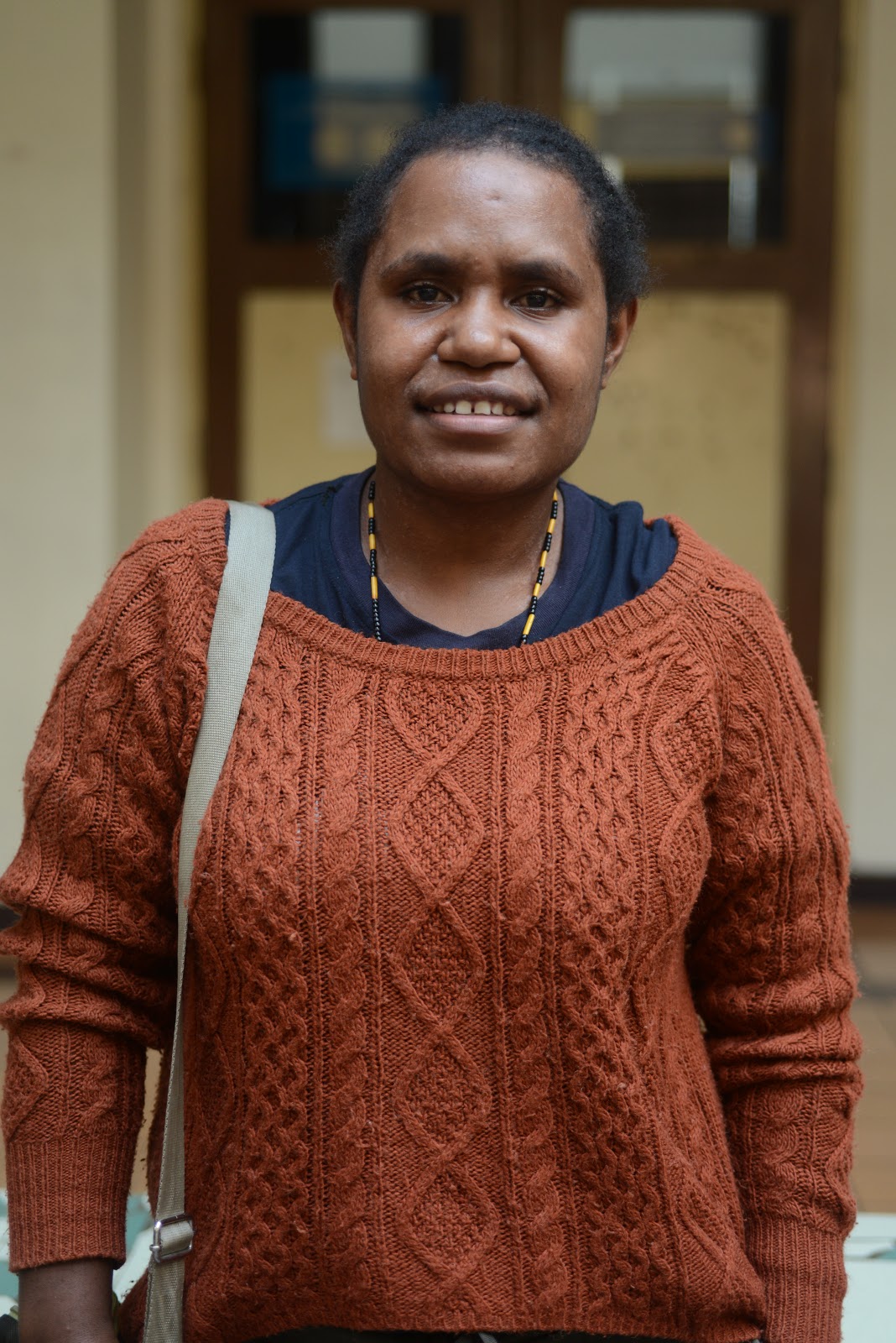Tales From Papua: Monica Kossay
"Hi, my name is Monica Kossay," said Monica with a big smile when I greeted her. At that moment, you could immediately see the spirit and happiness radiating from her smile. Her curly hair and dark brown eyes will greet you with warm and kindness.
Monica Kossay is a 20 year old woman from Wamena, Papua. She came to Yogyakarta to pursue her university degree. She told me that living in Yogyakarta is her first experience of going out side from Papua and living by herself. Before she went to Yogyakarta, she never imagined what would it be like to live outside of Papua. She only knew Yogyakarta through her brother's stories and news from television. Monica's brother was a student at Universitas Gadjah Mada, and often tell her about his experience in Yogyakarta. Since then Monica was so inspired and dreamed to go to Yogyakarta for studying and gathering new experiences that she'll cherish forever.
Monica worked hard to achieve her dreams. Her parents were very supportive and urge her to study in Yogyakarta. All of her hard works paid off when she received LPDP scholarship to study in Yogyakarta. Right now, she's studying about agriculture in Universitas Janabadra, Yogyakarta.
When she first arrived in Yogyakarta, she was quite surprised of the cultural differences. She told me that it was so amazing to see how people in Yogyakarta talk in such polite manner and gentle voice."It was completely different in Papua, and I really like it here!" said Monica. Monica also told me that she found some similarities between living in Yogyakarta and Wamena, Papua. She told me that both people of Yogyakarta and Papua were very polite and culture is something that very endearing for both society. It didn't take much time for Monica to adapt and make friends in Yogyakarta. She always try to understand the differences that she encountered, and always try to socialize with everyone by spreading kindness and warmness.
The thing that Monica loves the most while living in Yogyakarta is her chance to study agriculture in Universitas Janabadra. She told me that her professors gave her a small field for her, so she can learn gardening and farming. Monica used the small field to grew her own vegetables and fruits. She's so happy that she got the small field to experiment planting all kind of plants. Then, after she harvested her own plants, she cooked it for her traditional Papuan cuisine. And interestingly, cooking and food are one of her ways to make new friends!
Monica told me that, she did receive discrimination or stigmatization because of her identity as Papuan. For instance, when Monica tried to find accommodation in Yogyakarta, one of the landlord didn't feel comfortable to let her stay. The owner kept reminding her not to make any troubles. Monica did feel sad about it for a while. She thought, "Why people stigmatize Papuan as troublemakers? Are we that different from the rest of them?". Monica always try to show other people that Papuan are not like what they think. She showed to her landlord, that she's a good person and tackle the negativity with kindness. How you may ask? Monica tackled those negativity with her food and cooking. "A lot of times, when I met someone that didn't understand about Papua's culture or its people, I asked them to come to my little garden. After harvesting the vegetables and fruits, I cooked them traditional Papuan cuisine. Food became my language to bridge differences with them, and they love it!".
It's really amazing to see Monica's effort to change people's bad perception about Papua through her food. It made me realize that when language failed to resolve differences, food is the savior! But what struck me the most is her state of mind. During the whole interview, there's no single moment when Monica describe her bad experiences in Yogyakarta as something negative. She always try to see her experiences of discrimination and stigmatization with positive perspective. She told me that everyone should try to see the good side from every people. "Don't take the negative side and generalize that. Every people have their own kindness, and so does Papuan!"
Monica told me that no matter how people perceive Papuan, she will always be proud of her identity. "I'm proud to be Papuan, because those bad perceptions that people have towards Papuan are not true. And I will defend and let people know about my amazing culture." Monica told me that when she finish her study in Yogyakarta, she's going to come back to Wamena and help to develop Wamena's agriculture.
I must say after saying goodbye to Monica, I left with such amazing feeling in my heart. It takes a courage and humbleness for her to translate her bad experiences to something positive, and I learned that from her. Thus, to tackle discrimination and stigmatization in our society, we have to start an open discussion about it. Listen to other people stories and you'll expand your ways of thinking. You'll respect the differences and diversity of Indonesia even more. Be like Monica and spread kindness to everyone!
Text and Photo by Smita Tanaya
Stay Awesome, Be riot!
Love,




Comments
Post a Comment